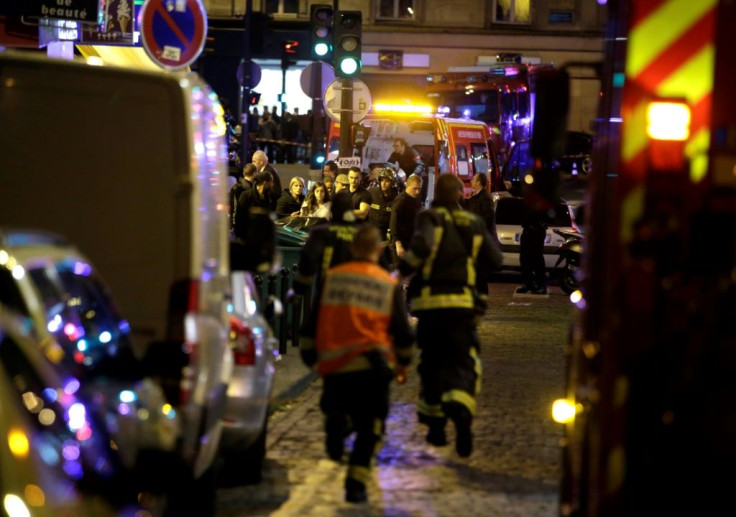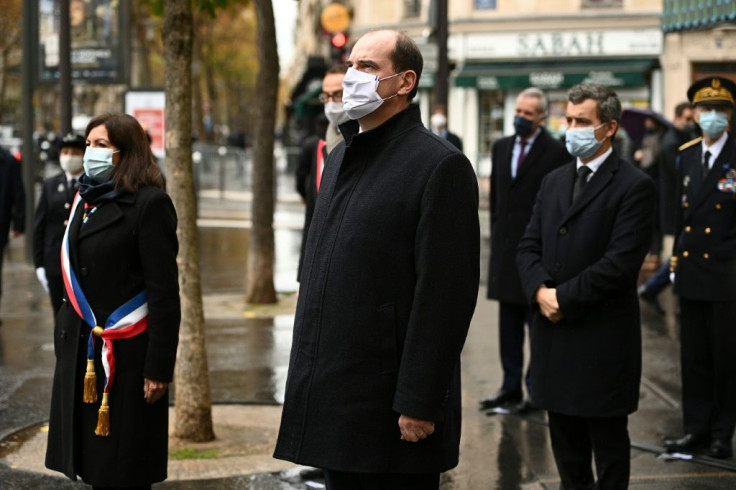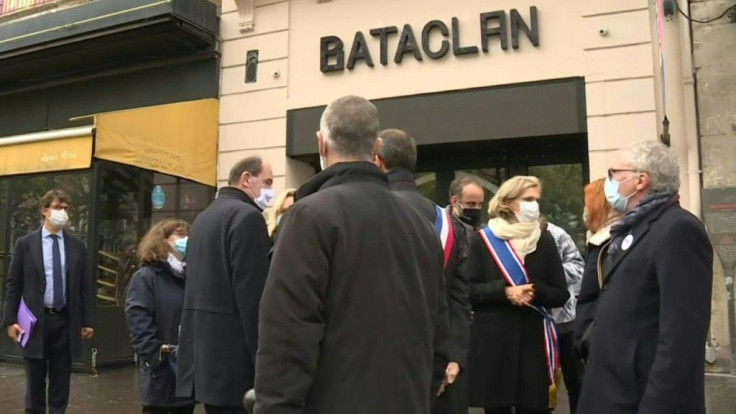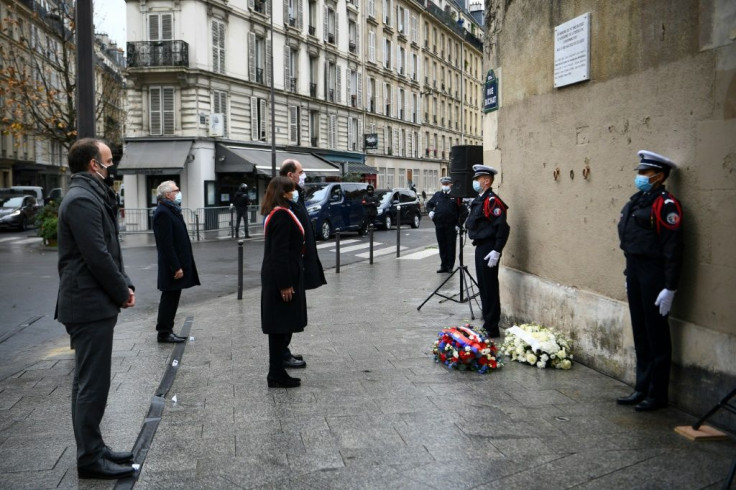Wounds Still Raw As France Remembers 2015 Paris Attacks
France on Friday marked five years since a squad of jihadist attackers went on a killing rampage in Paris in its worst peacetime atrocity, with the psychological wounds still raw and the country shaken by a string of new attacks.
"Let us never forget those who left us," President Emmanuel Macron said in a message on social media.
"France was struck to the heart. Horror in the middle of Paris, But the French remained standing. Standing in the face of terror. Standing to defend our freedom and values," he added.

The night of carnage on November 13, 2015 saw 130 people killed and 350 wounded when Islamist suicide bombers and gunmen attacked a sports stadium, bars and restaurants and a concert hall.
Prime Minister Jean Castex and Paris mayor Anne Hidalgo earlier attended small memorial ceremonies Friday, scaled down because of the coronavirus pandemic, at targeted sites including the Stade de France, the bar Le Carillon and the Bataclan venue.
"Today, five years on, Paris remembers," tweeted Hidalgo, using as a hashtag the Latin-language nautical motto of Paris -- Fluctuat Nec Mergitur (She is Rocked but does not Sink).
The Eiffel Tower was due to switch its lights off from 8:00 pm (1900 GMT) in homage to the victims and then flash every hour in memory of the attack.

"This was an assault not just on the people of Paris but against our common humanity and shared values," US president-elect Joe Biden said in a statement, vowing improved cooperation "in order to confront the many shared challenges we face".
The sheer horror of the attacks, claimed by extremists from the Islamic State group, left scars that have not yet healed as the security threat to France remains.

"Five years later, the most difficult thing is still the date of November 13 and all that surrounds it," said David Fritz Goeppinger, who survived the Bataclan massacre and wrote a book, "A Day in Our Lives", to help overcome the experience.
"It's really hard for me to say 'today, I'm better or today, that's it... Post-traumatic stress is not forgotten," he told AFP.
Frenchwoman Catherine Bertrand, who also survived the Bataclan assault and wrote a comic book, "Chronicles of a Survivor", said the post-traumatic stress has lessened over time but still returns.
"As soon as it's a question of going out, of using transport, it comes back," she said.

The fifth anniversary of the November 2015 strikes comes with France reeling from a knife attack outside the former offices of the Charlie Hebdo weekly, the beheading of a teacher and a deadly stabbing spree at a Nice church.
The renewed assault has reopened an impassioned and sometimes painful debate over France's approach towards its Muslim minority, with President Emmanuel Macron calling for a crackdown on Islamist radicalism.
Interior Minister Gerald Darmanin told Franceinfo radio on Friday that 48 foreigners without proper paperwork and suspected of radicalisation had been expelled from France since July 1.
Since 2015, atrocities have increasingly been carried out by people unknown to the intelligence services who are often inspired by jihadist propaganda and use weapons such as knives in attacks that need little preparation.
"They are still attacking us but through fanatic individuals who use knives to create fear," Francois Hollande, who was president at the time of the attacks, told the Le Parisien newspaper.
"The war on our soil is therefore not over, but many battles have been won since 2015."
In January 2015, Islamist gunmen massacred staff at Charlie Hebdo, claiming they were avenging the satirical weekly's publication of cartoons of the prophet Mohammed.
True to its defiant reputation, the magazine republished the cartoons to mark the start in September of the trial of suspected accomplices in the killings.
In the wake of that move, a Pakistan-born man wounded two people with a meat cleaver on September 25 outside Charlie Hebdo's former offices.
Teacher Samuel Paty, who had shown his class the same cartoons, was beheaded outside his school on October 16 by an Islamist radical from Chechnya. And on October 29, a man recently arrived from Tunisia killed three people with a knife in a Nice church.
Verdicts in the Charlie Hebdo trial, which had been expected this week, are now due on November 27 as the process resumes on Monday following a two-week adjournment after three defendants tested positive for Covid-19.
Early 2021 will meanwhile see the opening of the trial into 20 suspects in the November 2015 Paris attacks.
© Copyright AFP {{Year}}. All rights reserved.





















